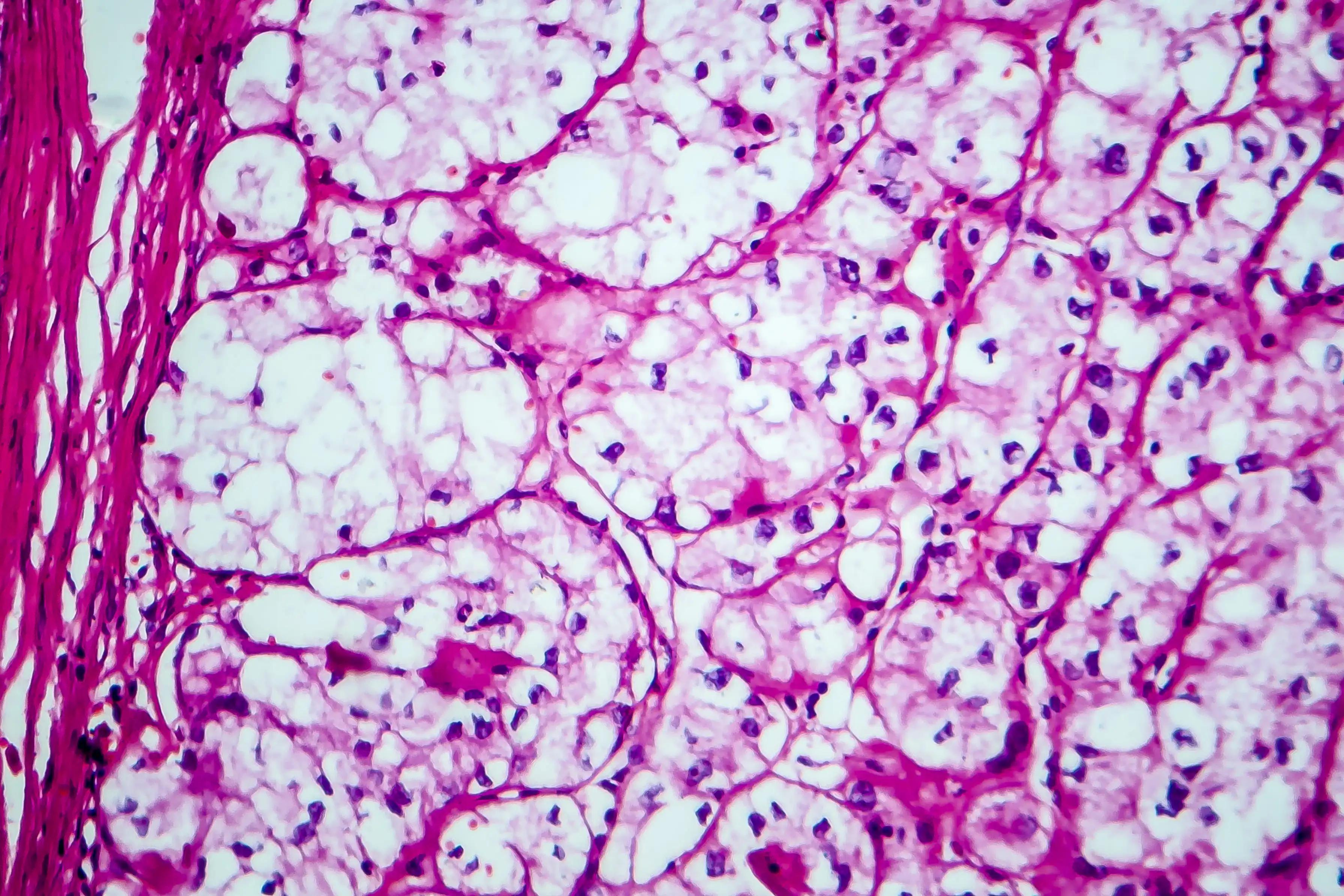KEY TAKEAWAYS
- The ARCITECT phase II trial aimed to assess the efficacy of Bot/Bal as the first-line treatment in pts with mccRCC.
- The primary endpoint of the study is ORR.
- Prospective results will detail survival, treatment periods, and immune-related events; correlative studies explore response predictors.
First-line treatment strategies for metastatic clear cell renal cell carcinoma (mccRCC) typically involve combining an anti-PD1 inhibitor with either an anti-CTLA inhibitor (IO/IO) or a VEGF receptor tyrosine kinase inhibitor (TKI) (IO/TKI). Among these, nivolumab/ipilimumab (Nivo/Ipi) (IO/IO) has demonstrated durable responses in some patients (pts), leading to treatment-free intervals. However, a significant portion of pts—more than ⅔—experience disease progression despite initial treatment success.
Resistance to nivolumab (anti-PD1) monotherapy has been linked to the increased presence of a specific subset of Tregs within the tumor microenvironment. Botensilimab (Bot), an immune checkpoint inhibitor (IO) agent, employs unique mechanisms involving FcyR to enhance T cell activation, deplete intratumoral Tregs, and promote myeloid cell activation. These mechanisms suggest potential efficacy in overcoming resistance observed with anti-PD1 monotherapy.
Combining botensilimab/balstilimab (Bot/Bal), targeting both CTLA-4 and PD-1 pathways (anti-CTLA/anti-PD1), has demonstrated promising anti-tumor activity. This combination has been showing effectiveness in diseases where Nivo/Ipi has shown limited or no efficacy, indicating a potential therapeutic advantage in mccRCC and warranting further investigation into its clinical benefits and safety profile.
Michael Serzan and the team focus on evaluating the efficacy and safety of the combination Bot/Bal (anti-CTLA/anti-PD1) as first-line treatment in pts with mccRCC. They designed this study to corroborate the combination’s ability to enhance T cell priming, deplete intratumoral Tregs, and activate myeloid cells, potentially overcoming resistance observed with nivolumab (anti-PD1) monotherapy.
Researchers designed this multicenter study to assess the efficacy and safety of Bot/Bal compared to Nivo/Ipi in pts with mccRCC. Eligible pts, categorized as favorable, intermediate, or poor risk per IMDC criteria and with no prior systemic therapy, will have at least 1 measurable lesion per RECIST 1.1.
About 120 pts will be randomized in a 2:1 ratio to receive either Arm A (Bot/Bal induction followed by Bal maintenance) or Arm B (Nivo/Ipi induction followed by Nivo maintenance), each for up to 2 years.
The primary endpoint of the study is to evaluate the overall response rate (ORR) per RECIST 1.1. It is hypothesized that Bot/Bal will achieve a superior ORR (55%) compared to Nivo/Ipi (40%). The trial is powered at >90% to detect this difference, with a 1-sided significance level not exceeding 0.10 using exact binomial testing.
The study incorporates Simon’s 2-stage design for early stopping in favor of the null hypothesis based on interim analyses. In the first stage, enrollment of 69 pts (Arm A: 46, Arm B: 23) will occur. If Arm A shows promising response rates (≥42.8% response or numerically similar to Arm B), the trial will advance to the second stage.
The key secondary endpoints of the study include landmark progression-free survival, treatment-free survival, and rates of immune-related adverse events. Correlative studies will explore immune and molecular predictors of response and resistance to IO/IO therapies in both tumor tissue and blood samples.
The trial was sponsored by Michael B. Atkins, MD, Hoosier Cancer Research Network.
Source: https://kcrs.kidneycan.org/wp-content/uploads/2024/06/KCRS24-Abstract-Book-6.27.24.pdf
Clinical Trial: https://clinicaltrials.gov/study/NCT05928806
Serzan M, (2024). “Advanced Renal Cell Cancer Combination Immunotherapy Clinical Trial (ARCITECT; HCRN GU 22-587).” Presented at KCRS 2024, (Abstract 2).



